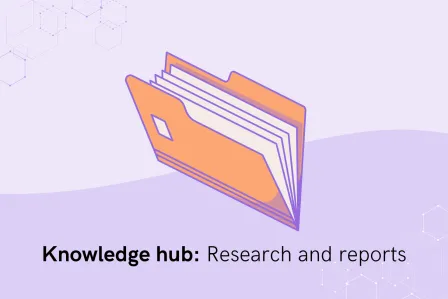This study was prepared by the Centre for the Prevention of Risky Virtual Communication at the Pedagogical Faculty of Palacký University. The report provides an in-depth analysis of how Czech pupils use, perceive, and are impacted by artificial intelligence (AI) technologies. The study explores the prevalence of AI tool usage, the purposes for which students employ AI (homework, translations, presentations, problem-solving), and the risks and challenges identified by both pupils and teachers—including cheating, misinformation, and the lack of clear school policies. The report also highlights teachers’ attitudes, the readiness of the educational system, and policy recommendations for integrating AI in education. It aims to inform digital literacy initiatives and responsible AI use among young people and educators in the Czech Republic.
(Source: Report)
Methodology
A structured online questionnaire was developed using Google Forms and distributed via email to principals and teachers at all primary and secondary schools across the Czech Republic. The questionnaire comprised 14 questions organized into four thematic sections: demographic information, use of generative artificial intelligence in leisure time, use of artificial intelligence in educational settings, and perspectives on the future of AI. Data collection took place from September 2 to October 17, 2024, ensuring broad regional representation. The collected responses were analysed using the Julius AI tool, which leverages artificial intelligence and the Python programming language for advanced data processing and statistical analysis.
(Source: Report)
Country or region of researched population
Czech Republic
Citation
Kopecký, K., Voráč, D., Szotkowski, R., & Křížová, M. (2024). Czech pupils and artificial intelligence [Čeští žáci a umělá inteligence]. E-Bezpečí, Palacký University Olomouc. https://www.e-bezpeci.cz/index.php/ke-stazeni/vyzkumne-zpravy/190-cesti-zaci-a-umela-inteligence-2024/file

This study was prepared by the Centre for the Prevention of Risky Virtual Communication at the Pedagogical Faculty of Palacký University. The report provides an in-depth analysis of how Czech pupils use, perceive, and are impacted by artificial intelligence (AI) technologies. The study explores the prevalence of AI tool usage, the purposes for which students employ AI (homework, translations, presentations, problem-solving), and the risks and challenges identified by both pupils and teachers—including cheating, misinformation, and the lack of clear school policies. The report also highlights teachers’ attitudes, the readiness of the educational system, and policy recommendations for integrating AI in education. It aims to inform digital literacy initiatives and responsible AI use among young people and educators in the Czech Republic.
(Source: Report)
Methodology
A structured online questionnaire was developed using Google Forms and distributed via email to principals and teachers at all primary and secondary schools across the Czech Republic. The questionnaire comprised 14 questions organized into four thematic sections: demographic information, use of generative artificial intelligence in leisure time, use of artificial intelligence in educational settings, and perspectives on the future of AI. Data collection took place from September 2 to October 17, 2024, ensuring broad regional representation. The collected responses were analysed using the Julius AI tool, which leverages artificial intelligence and the Python programming language for advanced data processing and statistical analysis.
(Source: Report)
Country or region of researched population
Czech Republic
Citation
Kopecký, K., Voráč, D., Szotkowski, R., & Křížová, M. (2024). Czech pupils and artificial intelligence [Čeští žáci a umělá inteligence]. E-Bezpečí, Palacký University Olomouc. https://www.e-bezpeci.cz/index.php/ke-stazeni/vyzkumne-zpravy/190-cesti-zaci-a-umela-inteligence-2024/file
- digital citizenship digital media digital skills
Related content
- < Previous Item
- Next Item >


